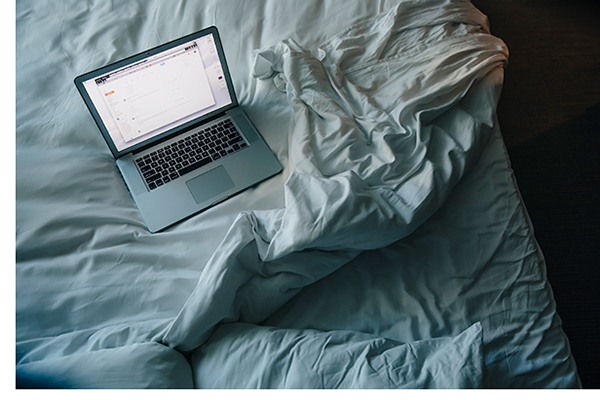Many of us would like to get more sleep but for some reason just don’t seem to get to bed in time to clock in our needed eight or so hours. Why might that be?
Getting enough good-quality sleep is important for so many different reasons. There are direct health benefits to sleep, including boosting immunity, balancing hormones, clearing toxins and repairing cells. There are also indirect health benefits. For example, sleep deprivation is associated with higher risk of obesity, perhaps due to changes in cravings for less healthy, starchy or sugary foods for extra energy.
Sleep also affects our cognitive functions by consolidating the experiences of the day, which helps us to sort information and make mental connections between seemingly disparate pieces of knowledge. Sufficient sleep can prevent accidents and improve attention and mood.
Better sleep could even benefit our bank balance: one study found that more sleep was correlated with higher earnings. Given the restorative quality of sleep and its physical and cognitive benefits, it is not surprising that we might perform better at work after a good night’s rest.
Given all these benefits, why don’t we get enough shut-eye?
There are a host of serious issues beyond our control that can affect our ability to sleep well. Insomnia or other medical issues, feeling unsafe, loud noises from within or outside our home, having to look after a baby or someone else in the household, and other reasons could all play a part.
But what about those times when external conditions are perfect, and yet we still fail to get to bed in time? Our bedtime routine, and a combination of environmental and behavioural hurdles might be part of the reason we find it difficult to get to bed on time.
Think of the pre-bedtime activities many people engage in: watching TV, checking email on a tablet, reading social media updates on a phone. Research shows that the light emanating from the screens, mimicking sunlight, is tricking our bodies into thinking that it is time to be awake by supressing our natural release of melatonin.

A slightly different point is that rather than the screen itself, the activity we are engaging in when using these bright screens might be causing us to stay up later than we would like. We now have access to communication at any time of night, which in other ages would have been impossible or inappropriate. This cognitive stimulation, either through stress (think of a request from the boss) or excitement (a social invitation), will keep us awake. Could it be that even just the potential for this type of communication is keeping us in suspense — we have a fear of missing out on some piece of news or coming to the social interaction late in the game?
Do you treat sleep as a luxury or a priority?
Some of our natural human characteristics may also be to blame when we fail to get enough sleep. For example, what behavioural scientists call ‘empathy gaps’ might play a part in keeping us awake at night. Our late-night-self, when responding to emails or watching another episode of our favourite series, might not empathise with our sleep-deprived next-morning-self: we don’t anticipate feeling as badly as we actually will when trying to perform well the next day at work or school.
Or, perhaps it is our tendency to be optimistic and overconfident that delays us hitting the sack. Of course, optimism isn’t necessarily a bad thing. But when it leads to unrealistic expectations for the future, it can lead us astray. In the case of sleeping, we might be overly optimistic that replying to that email, or making the cupcakes for the school bake-off, or practicing that work presentation, will all take less time than they actually do – and feel overconfident that the lack of sleep won’t affect us much.

An open question is to what extent the metaphors we use affects our shut-eye. Do we refer to sleep as ‘recharging batteries’ or ‘crashing out’, and does that influence whether we treat sleep as a luxury or a priority? The language and metaphors used, alongside the behavioural and environmental aspects of our bedtime routine, are all factors to consider when thinking about the practice of sleeping.
How much sleep is enough depends on the person. Adults are advised to get seven to nine hours of sleep per night, with some people functioning best at the lower end of the scale and others at the higher end. According to the NHS:
“Simply put, you need enough to make you refreshed and able to function efficiently the next day… The number of hours depends completely on the individual.”

Be the first to write a comment
Comments
Please login to post a comment or reply
Don't have an account? Click here to register.